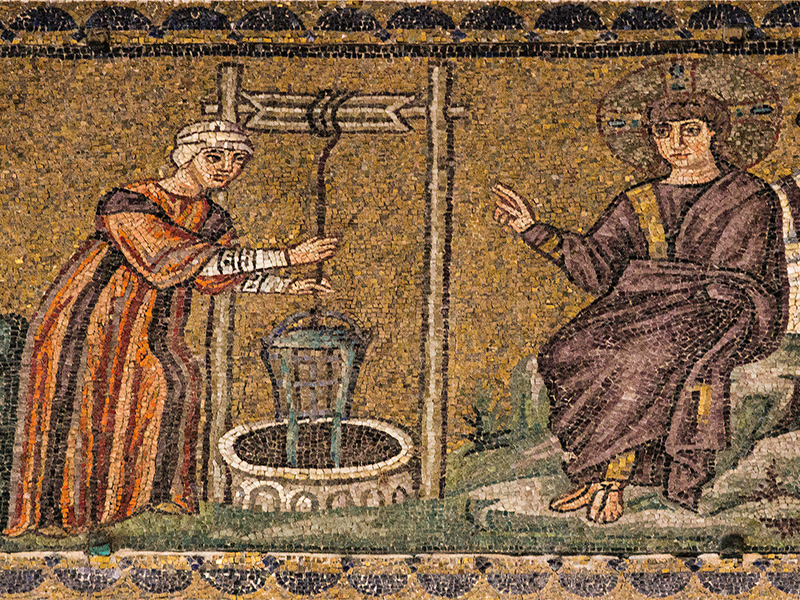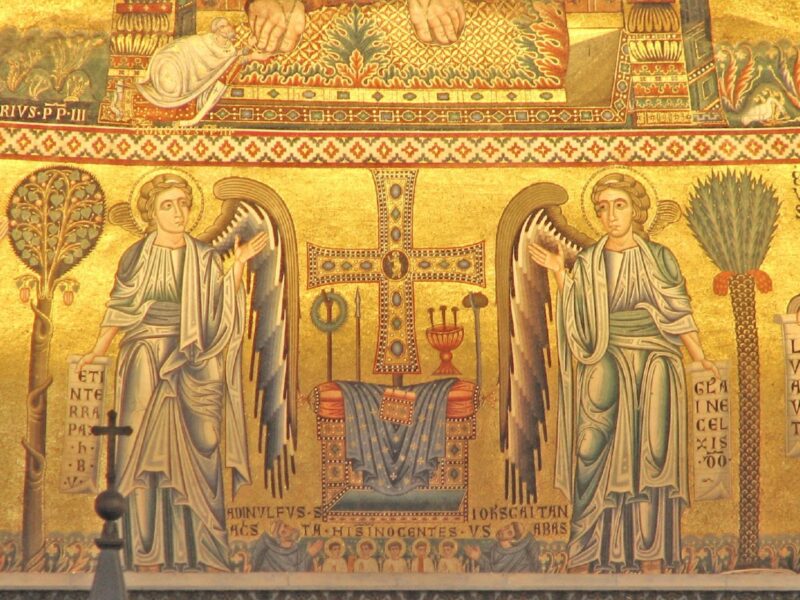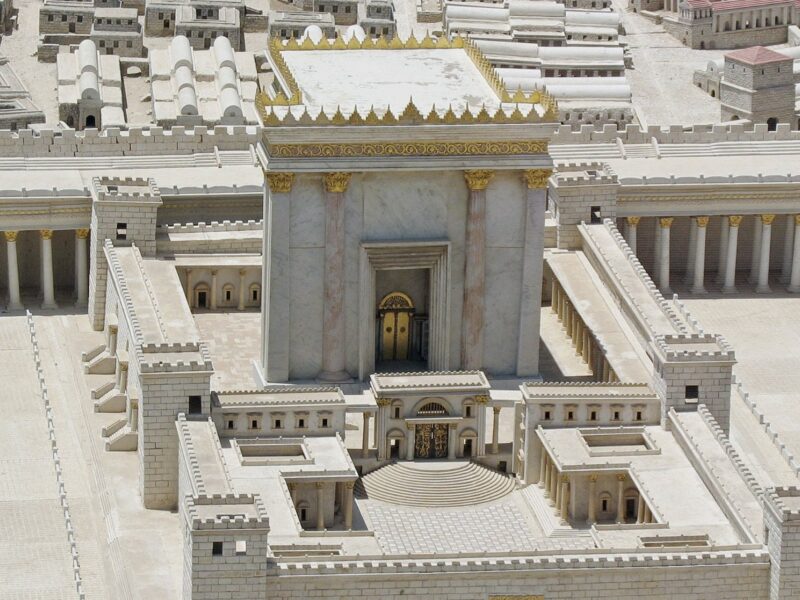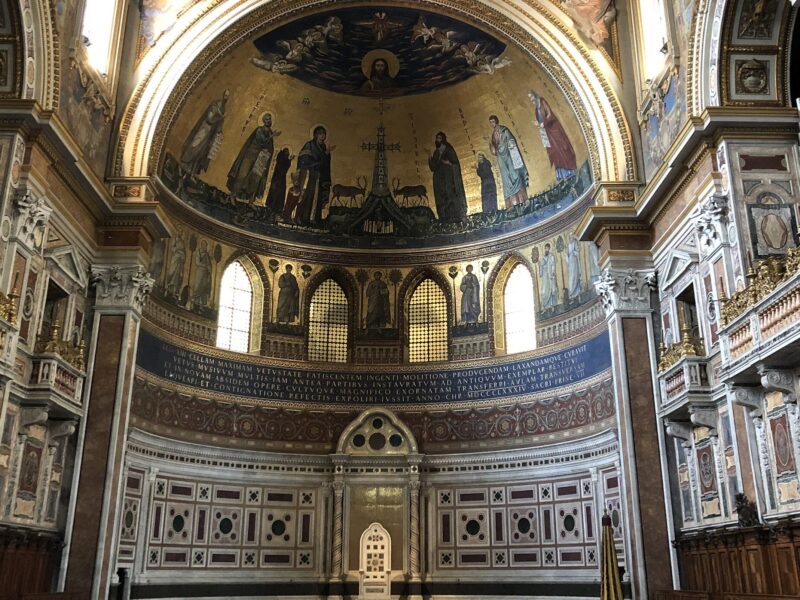
Standing in the Truth
Third Sunday of Lent (A) | Fr Benedict Jonak reflects on the courage of conversion so that we can stand in Christ’s gentle truth.
The fall of Adam into original sin is sometimes called the “happy fault” (felix culpa), and you might wonder why it is called this.
It is a happy fault because through it the Word, the Second Person of the Trinity, became truly man. The Incarnation of God is real and on it hinges our salvation. It is how God chose to save us after we cut ourselves off from him. God sees the goodness of the human race even though it is fallen. He cherishes the bruised and the broken in order to raise them up through the life and passion of Christ. In other words: God could have wiped out the human race and started a project for “perfect humanity” from scratch. Or he could have simply painted over the cracks of what had been shattered as if he were trying to overlook it. But this is not what has happened. God desires our transformation and so he “who is rich in mercy, out of the great love with which he loved us, even when we were dead through our trespasses, made us alive together with Christ – by grace you have been saved” (Eph 2:4-5). God does not infantalise us, pretending that our freedom is not real and that our decisions and choices do not matter – on the contrary, he respects that. His mercy is shown to us in that he assumed our condition, and that even when we fall we can still be moved to accept his grace and can change our ways. God’s mercy brings about repentance, and the fruit of repentance is sanctification: a life lived with God.
When Jesus says to the woman by the well: “Give me a drink”, he is not pretending to be thirsty. It is not a show designed to trick her into following him – rather it is Christ expressing the divine thirst for souls. For us, too, the thirst for God, which every human being possesses, is not something pretend or cosmetic. It is real and it is a fundamental characteristic of our human natures, which the woman by the well acknowledges when she says “Sir, give me this water, that I may not thirst, nor come here to draw.”
But is this how we ourselves treat the thirst for God? Do I see my thirst for God and my following of Christ as something which is accidental to my life, or is it something that I value as being fundamental to my existence? Do I believe in the grace of God that can transform me inwardly and enable me to change my ways? Do I have the courage to live without sin as sin is no longer inevitable in the life of grace? Of course we all know that it is not always easy to find that courage. In fact it may be a difficult and complicated process. We frequently waver and our faith is weak and when we finally have the courage to do what is right and true it often demands a great sacrifice. We need to trust, though, that Jesus is with us in that process, even when we waver in our weakness.
We ought also to admire the Samaritan woman whom Christ meets by the well for her courage to stand in the truth and to follow Christ. Her difficult past is brought to light in the conversation: she is in her sixth relationship and that relationship is irregular. But she is able to stand in the truth and accept that the living water can only come from Christ. She is refreshed and goes off to preach the good news about God’s mercy to others, the mercy that did not condemn her but rather gave her the courage to stand in the truth. Jesus also gives us that same courage even today by allowing us to accept the truth even if it is by incrementally small steps.
Although today’s Gospel reading is not so much about whether or not Jesus can sustain us emotionally when we find ourselves in difficult personal circumstances like the Samaritan woman (of course he can), the Gospel is about whether we see our faith, our friendship with God, as something of fundamental necessity, and about whether we have the courage to change accordingly so that we might worship God in spirit and in truth. God’s mercy should spur us on to answer his call with joy. This call leads us to the fulness of life in Christ by whose wounds our shattered and fallen race has been made whole.
Exodus 17:3-7 | Romans 5:1-2. 5-8 | John 4:5-42
Photograph by Fr Lawrence Lew OP of a mosaic in the church of Sant’Apollinare Nuovo in Ravenna.


